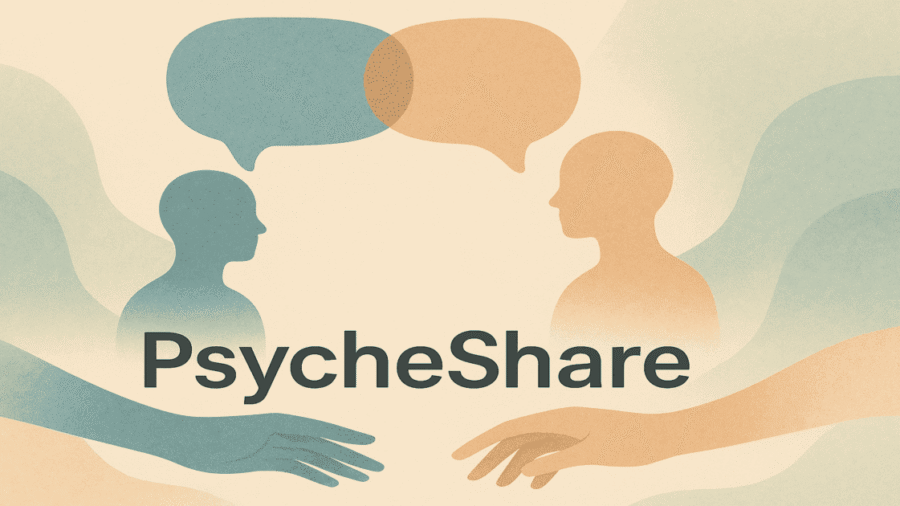Have you ever wondered why you react a certain way in relationships or why some emotions feel so intense and confusing? Psychodynamic therapy may hold the answers. This powerful and time-tested approach to mental health treatment helps people uncover the hidden roots of their emotional struggles, often buried deep within their unconscious mind.
Let us explore what psychodynamic therapy is, how it works, and why it continues to be one of the most transformative forms of talk therapy in modern psychology.
What Is Psychodynamic Therapy?
Psychodynamic therapy is a type of talk therapy that focuses on the psychological roots of emotional suffering. It is based on the idea that our unconscious mind holds on to painful memories and unresolved conflicts, often formed in early childhood, that influence our behavior and emotions in adulthood.
This therapy draws heavily from Sigmund Freud’s psychoanalytic theories, but has evolved over the years into a more conversational, collaborative process. According to the American Psychological Association, this therapy helps individuals gain greater self-awareness and understanding of their past, which in turn leads to better control over their present behaviors and feelings (APA).
How Does Psychodynamic Therapy Work?
At the core of psychodynamic therapy is the therapeutic relationship. You and your therapist will engage in deep, reflective conversations about your thoughts, feelings, dreams, and past experiences.
Key Techniques Include:
- Free Association: You speak freely about whatever comes to mind, helping uncover unconscious thoughts.
- Exploration of Childhood Experiences: Your early relationships, especially with caregivers, are examined to understand patterns in your current relationships.
- Identifying Defense Mechanisms: Behaviors such as denial or projection are explored to see how they may be affecting your emotional health.
- Transference and Countertransference: The emotional reactions between you and the therapist are studied as they may reflect past relationship dynamics.
Research from the American Journal of Psychiatry shows that psychodynamic therapy can result in lasting psychological improvement, often continuing even after the therapy has ended.
Who Can Benefit from Psychodynamic Therapy?
This therapy is especially effective for people who experience:
- Depression
- Anxiety
- Relationship problems
- Personality disorders
- Grief and loss
- Emotional trauma
A major advantage of this therapy is that it not only treats the symptoms but also aims to resolve the underlying causes of distress.
According to Psychology Today, psychodynamic therapy can be particularly beneficial for individuals who want to gain deep insight into their emotional world and make long-term changes.
Is Psychodynamic Therapy Effective?
Many people question whether talking about the past really makes a difference. The answer is yes. Multiple meta-analyses have shown that psychodynamic therapy is as effective as, and sometimes even more effective than, other forms of therapy like Cognitive Behavioral Therapy (CBT), especially in long-term outcomes.
A landmark study published in the Archives of General Psychiatry found that psychodynamic therapy led to significant and sustained improvements in patients with complex mental health conditions (Archives Study).
What to Expect in a Session
A typical session lasts 45 to 50 minutes and may be held once or multiple times per week, depending on your goals. You will be encouraged to reflect deeply on your feelings and experiences. Unlike more structured therapies, psychodynamic sessions are often open-ended and flow naturally based on your thoughts and insights.
Over time, you may notice:
- A better understanding of yourself
- Improved relationships
- Reduced symptoms of depression or anxiety
- Greater emotional freedom and resilience
Psychodynamic Therapy vs Other Therapies
Here is how the therapy compares with other common approaches:
| Therapy Type | Focus Area | Time Frame | Style |
|---|---|---|---|
| Psychodynamic Therapy | Past experiences and emotions | Long-term | Reflective |
| Cognitive Behavioral Therapy (CBT) | Thoughts and behaviors | Short-term to mid-term | Structured |
| Humanistic Therapy | Personal growth and self-worth | Varies | Client-centered |
Each therapy has its strengths, but psychodynamic therapy is unique in how it uncovers deep emotional truths that might otherwise remain hidden.
Is It Right for You?
If you find yourself stuck in emotional patterns you cannot explain or feel that something unresolved is holding you back, this therapy may offer the clarity and healing you need.
Finding the right therapist is key. Look for professionals trained in psychodynamic methods, and ensure you feel safe and supported in the therapeutic relationship.



[…] helpful approach is Psychodynamic Therapy, which uncovers unconscious patterns and emotional blueprints that often shape the way we respond […]
[…] a deeper look into how early relational patterns affect your ability to face emotional truth, read Psychodynamic Therapy. It explores how unconscious habits formed in childhood can shape how we navigate conflict as […]